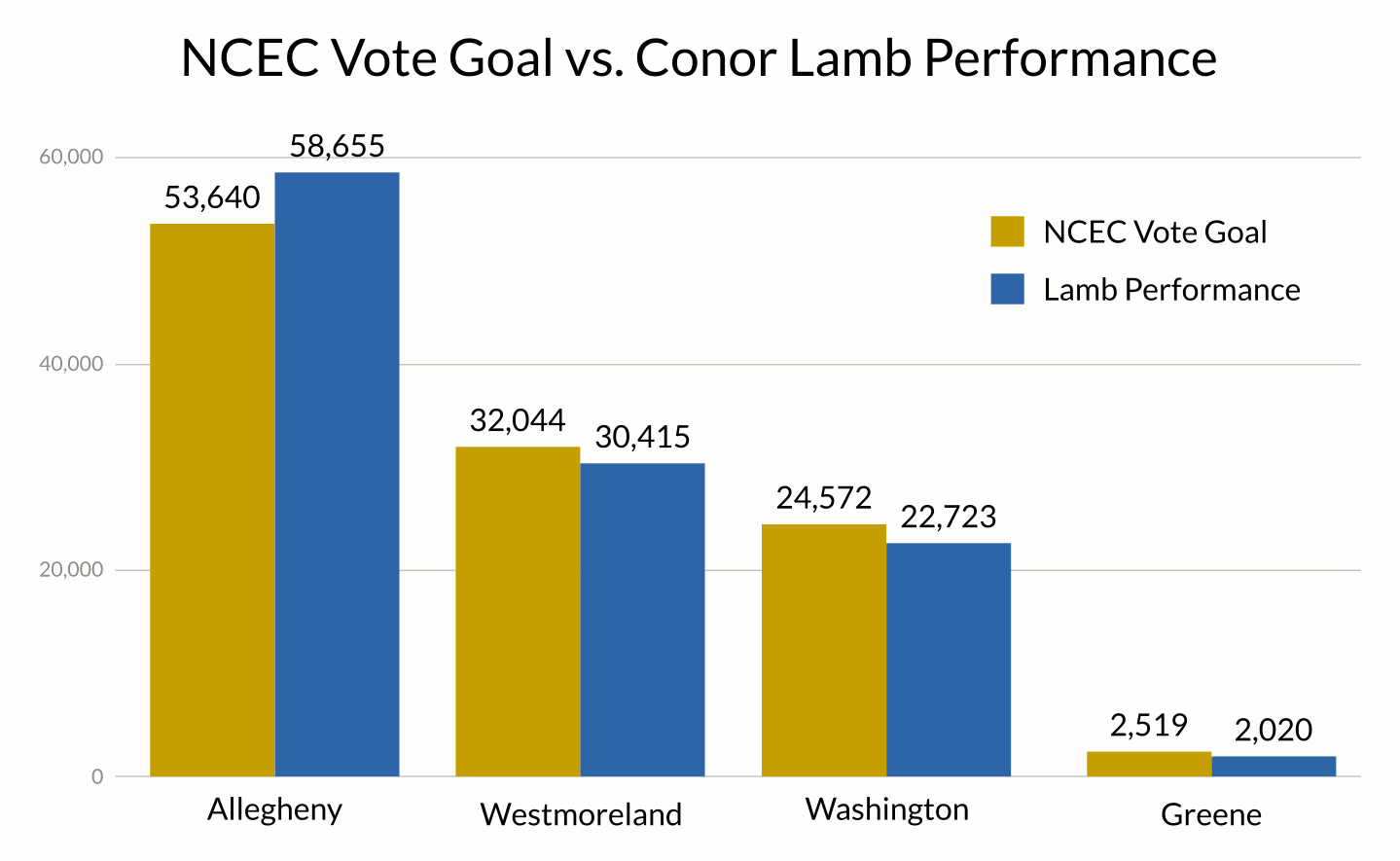Conor Lamb’s victory in this week’s special election holds several important lessons for the upcoming general election. Again suburban voters emerged as the key voting bloc for Democrats, and the massive turnout in Allegheny County provides a fresh blueprint to follow. The NCEC provided campaign planning and analytics to the Lamb campaign. Our vote goal—built from high-fidelity data and detailed analysis—proved an accurate guide to victory.
Suburban Voters Made the Difference
Looking toward the general election, suburban voters will be the key for any Democratic resurgence in Congress. In 2016, this bloc of voters did not reject Donald Trump to the level that some expected, but this year’s special elections have shown that their level of dissatisfaction has grown. The turnout in Allegheny County—mostly in suburban Pittsburgh precincts—is a perfect example, even exceeding our expectations, and providing enough votes to offset the more conservative areas of the district.
In challenging elections such as this, we calculate pre-election vote goals at the county, town, and precinct-level to produce an aspirational vote goal of 52 percent for the contest as a whole. This served as a reliable guide for planning and measuring the level of performance the Lamb campaign needed to win.

| County | Expected Vote Share |
Election Night Vote Share |
NCEC Vote Goal (major party percent) |
Lamb Performance (major party percent) |
|---|---|---|---|---|
| Allegheny | 42.6% | 45.0% | 58.1% | 57.5% |
| Greene | 2.3% | 2.1% | 50.2% | 41.9% |
| Washington | 22.4% | 21.6% | 50.5% | 46.5% |
| Westmoreland | 32.7% | 31.3% | 45.2% | 42.6% |
| Total | – | – | 52.0% | 50.1% |
As noted in the previous table, the Lamb campaign fell short of the aspirational vote goal but performed well in this hotly contested district. A focus on Allegheny County helped the campaign outperform expectations here and helped make up for lower performance of more rural counties.
Where Else Could This Play Out?
The most important aspect of Tuesday’s victory is about what it could mean for the future. If the voting behavior we saw is indicative of a larger trend, the list of districts that the Democrats can reasonably target is growing. Ohio’s 10th Congressional District shares many similarities with Pennsylvania’s 18th and in light of Tuesday’s victory, interest in this district could grow as we near the general election.
